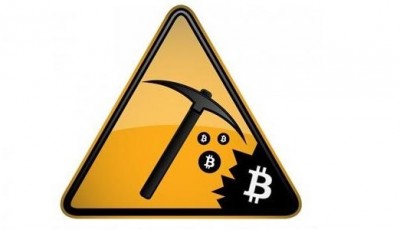Bitcoin startup 21 Inc. raises $116 million in venture funding
 The Wall Street Journal reported Tuesday that a secretive San Francisco-based startup called 21 Inc. is emerging from stealth to announce it has raised $116 million in venture funding, the most funds raised ever by a startup in the digital currency industry, according to data from CoinDesk.
The Wall Street Journal reported Tuesday that a secretive San Francisco-based startup called 21 Inc. is emerging from stealth to announce it has raised $116 million in venture funding, the most funds raised ever by a startup in the digital currency industry, according to data from CoinDesk.
While the company is not yet publicizing the exact nature of its business, the chief executive and co-founder, Matthew Pauker, told the Wall Street Journal that there will be “several interesting developments over the next weeks and months” about software and hardware products designed “to drive mainstream adoption of bitcoin.”
The newspaper reported that 21 Inc.’s lead investors include venture capital titans Andreessen Horowitz and RRE Ventures, along with Chinese private equity firm Yuan Capital, with a strategic stake going to chipmaker Qualcomm Inc. via its venture capital unit.
Other investors include Khosla Ventures, Data Collective, PayPal co-founders Peter Thiel and Max Levchin, eBay Inc. co-founder Jeff Skoll, Dropbox Inc. CEO Drew Houston, Expedia Inc. CEO Dara Khosrowshahi, and Zynga Inc. co-founder Mark Pincus.
Pauker, who previously co-founded data encryption firm Voltage Security Inc., which was sold to Hewlett Packard Co. last month, told the Wall Street Journal that Qualcomm’s involvement is key. Pauker hopes to leverage the San Diego-based company’s mass marketing and production capabilities in the development of a suite of consumer products that integrate with Bitcoin’s block chain.
The Wall Street Journal said Qualcomm’s involvement could drive speculation that 21 Inc. has its eyes on the so-called “Internet of Things” – the idea that multiple smart, Internet-enabled appliances will in the future communicate with servers, networks, and each other to enhance their operation, maintenance, and energy use without direct human involvement.
The newspaper said some developers believe Bitcoin technology could play a significant role in managing the vast flow of information these smart machines generate. Since the block chain ledgers are decentralized, smart appliances can, in theory, connect with computers developed by other entities safely without concern the information was manipulated.
The Wall Street Journal reported that starting out under the previous name 21e6, the company, whose name references the 21-million limit that Bitcoin’s managing algorithm imposes on the total number of coins to be mined, sparked intense speculation in November 2013, when a regulatory filing revealed a $5-million fundraise.
Members of the Bitcoin community wondered about a secret vehicle for Silicon Valley elites to produce high-powered equipment that could dominate Bitcoin mining, but Pauker’s comments about a consumer focus suggest that is not where 21 Inc. ended up, said the newspaper.
The initial secrecy around the startup was “solely for pragmatic reasons – we didn’t have anything to say to the world,” said co-founder Balaji Srinvivasan, who is also a partner at Andreessen Horowitz, to the Wall Street Journal. He compared 21 Inc.’s work in developing Bitcoin products for the general public to the sequential development of 56-kilobit Internet modems, international fiber cables and wireless Internet towers, which all helped bring the Internet to people’s homes during the late 1990s.
The newspaper said this notion also has parallels with the mass Internet appeal achieved in the 1990s by the creation of the Netscape browser of Marc Andreessen, a co-founder of Andreessen Horowitz. Asked by the Wall Street Journal for his views on 21 Inc., Andreessen said it “is working on what they – and we – consider to be core infrastructure for mainstream bitcoin.”












